By John Helmer, Moscow
In the war against Russia, the award of the Nobel Prize for Literature to Bob Dylan is a sideshow, although the Swedish Academy is doing what it can to elevate his monosyllabic rhyming to a moral high ground whose only precedent is the Norwegian award of the Nobel Prize for Peace to Barack Obama in 2009. Obama’s congratulations to Dylan for “a well-deserved Nobel” was issued before Dylan acknowledged receiving it.
Dylan’s lyrics have been in steady decline among US and NATO audiences for the past 40 years. They had dwindled to invisibility until last week’s Nobel prize announcement. Billboard, the US measure of plays and pays in the pop music market, has failed to record Dylan in its Top-100 artists for decades; Billboard’s 200 “Greatest of All Time” albums doesn’t count Dylan at all. The Nobel publicity for Dylan failed to revive the listening audience or move any of his songs into the Billboard Hot 100. That is currently led by a song by The Chainsmokers of New York City. Their lyrics open with: “Hey, I was doing just fine before I met you”; and close with “no we ain’t ever getting older.”
Russian war songs are more popular than ever, according to Russian audience measurements. But the best of the Russian bards at this genre, Vladimir Vysotsky and Victor Tsoi, can’t qualify for next year’s Nobel prize. That’s not because their verse isn’t superior to Dylan’s, but because they are dead. So next year’s Russian nominee will be Melnitsa.
“Why should American culture be given a worldwide award?” commented Yury Loza, a well-known Russian pop singer.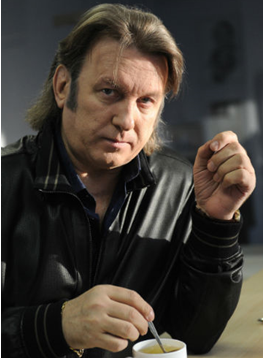 “For us Vysotsky has been much deeper in Russian culture. There are plenty of Bob Dylans and his like also in China and Japan. But noone gives them Nobel prizes.” “The NobelPrize, it turns out, is an American award, which the Americans have given themselves. No shit — There is no poetry in [Bob Dylan’s songs].
“For us Vysotsky has been much deeper in Russian culture. There are plenty of Bob Dylans and his like also in China and Japan. But noone gives them Nobel prizes.” “The NobelPrize, it turns out, is an American award, which the Americans have given themselves. No shit — There is no poetry in [Bob Dylan’s songs].
His poems are never translated. And his songs — no orchestra in the world plays them, and as a composer, he was never considered. Bob Dylan – this is a standard songster, which every country has in bulk!”
For the radio audience, the Russian pop music market is diverse, stratified partly by the amount of money listeners have to spend on buying music. “Each radio station has its own character and market niche,” reports Moscow analyst, Richard Kochetov. “Some of them prefer Russian music; others, both Russian and foreign. There are also stations which play only foreign (western or oriental) music. Some of them prefer to play songs of the 80s and 90s, such as Avtoradio and Retro FM); the audience, which usually listens to this music, is the most solvent and with the largest disposable income. They associate with these songs, groups and musicians – Boney M, Al Bano, C.C. Catch, Scooter, etc. These artists are still popular in Russia, possibly even more popular than in other countries where they are almost forgotten. This is normal because Russia is a multinational and multicultural country.”
The radio audience measurement agency TNS-Global reveals that Avtoradio has a daily reach of more than 9.7 million listeners; Retro, almost 8 million. In audience they are exceeded only by Europa Plus.
MOSCOW RADIO RATINGS – DAILY AUDIENCE REACH, IN PERCENT AND THOUSANDS, OCTOBER 2015-MARCH 2016
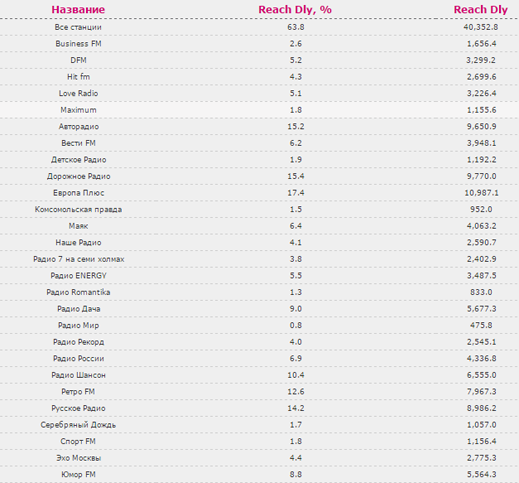
Source: http://www.tns-global.ru/services/media/media-audience/radio/radio-index/information/ratings/?arrFilter_pf%5BCITY%5D=5096&arrFilter_pf%5BDATE%5D=Октябрь+2015+-+Март+2016&set_filter=Сформировать&set_filter=Y
But significant shifts in audience taste and demand are under way. The radio stations playing the most Russian of music selection have been steadily gaining in audience since 2014. These include Dorozhnoye Radio, Radio Chanson, Russian Radio, Mayak, and Nashe Radio (“Our Radio”); together, their audience currently totals more than 27 million per day.
“Since 2014,” explains Kochetov, “we can see that music of Russian origin is more popular than the new foreign pop music. For example, Nashe Radio. The TNS rating shows its audience reach has grown by 6%; the other Russian music stations by as much or more. Nashe Radio is specialized mostly on Russian rock music. It’s very popular because it doesn’t play songs which will be forgotten a month later. Such groups and musicians as Boris Grebenshikov (below, left), Splean, Melnitsa (lead image), Kino, Mashina Vremeni (centre), and many others are played regularly. Why? Because their songs touch the feelings of every Russian.”

For translations of Vysotsky’s song lyrics, click to open
“Everybody in Russia knows Victor Tsoi’s ‘Pack of cigarettes’ or ‘The star called the sun’. Usually his songs are the first which young people learn how to play on guitar in the company of their friends. Very simple music, but very deep-minded texts. This can also be said about the whole of Russian rock music. Of course I can’t pass by Vysotsky (above, right), whose songs can be called eternal for Russian people. More than 30 years have passed since his death, but it can be said that his songs would be popular even after another 30 years pass. To this day he exerts significant influence on many of Russia’s popular musicians and actors. Every year on January 25, his birthday, Nashe Radio broadcasts cover versions of his songs made by Russian musicians. Sometimes young rock groups became very popular after they made such a tribute to Vysotsky.”
“Yes, we can call Nashe Radio patriotic. It sponsors the annual music festival Nashestvie (literally, “invasion”, but a pun on Nashe). It’s the country’s main summer pop music festival. Of course, the government couldn’t pass by such a great event. Every year the Defence Ministry sends different army vehicles and aircraft squadrons to take part in the show.”
“The connection with the government politics can be easily seen. For example, when Makarevich, the front-man and songwriter for Mashina Vremeni, announced publicly his support for the new Ukrainian regime in 2014, you could rarely hear his songs on the radio playlists. After he had changed his opinion, everything returned to its place. The same thing has happened with a Ukrainian group, and with a group from Belarus which was rather opposed to the Belarus government and President Lukashenko. The Ukrainian events in 2014 divided Russian musicians (not only rock musicians) into two sides. And it can be said that the musicians who were for the new Ukrainian regime became less popular and less broadcast. But there’s an interesting fact on the other side. Russian musicians haven’t become less popular in Ukraine. For example, Melnitsa remembers how the group was received in Kiev and Kharkov. People were standing with tears on their faces. As I remember, the group Splean has recently given a concert in Ukraine, too. Both these groups sang there in Russian. I think it shows that good music can break through the walls of propaganda and brainwashing and remind us we are brother nations.”
Measuring the size and value of the Russian pop music market isn’t easy. Pop music charts in Russia that are comparable to Billboard in the US are acknowledged to be commercial promotions, http://www.europaplus.ru/index.php?go=Chart40 http://www.shazam.com/charts/top-100/russia and the audience doesn’t consider them reliable measurements. Here is a discussion of the collusion in Russian charting of pop music, which concludes: “To trust them for one hundred percent would be ridiculous…So, the perfect chart in Russia doesn’t exist…It would be logical to add the frequency of references in the press to sales figures for discs, and also the frequency of air plays. However, it’s too easy to manipulate such measures and indexes electronically.” That was reported in 2009. Industry sources say nothing has changed since then.
The Russian version of Billboard went out of business three years ago. Tophit.ru hasn’t been able to replace it. Spotify, the international music streaming business which was launched in Sweden in 2008 and is better known in Russia than the Swedish Academy, planned to open a Russian business in 2014. It was then deterred by the war sanctions, the sudden drop in Russian consumer income, and also by Russian legislation requiring domestic data storage. Russian money demand, even at today’s depressed level, continues to be alluring for the Swedes, who are reportedly back in the music streaming market for fear of being shut out by Russian brands. “Russia’s digital music market defied expectations and grew by 11 percent to $30.4 million in 2015, according to PricewaterhouseCoopers,” reports Bloomberg. “The main players in Russia’s streaming segment are Apple Music, the ailing Australian company Guvera and local services Yandex.Music, a division of the “Russian Google,” Yandex, and Zvooq, backed by the retailer Ulmart.”
For reporting by PriceWaterhouseCoopers, click to open. The International Federation of the Phonographic Industry (IFPI), based in Switzerland, reports “a key milestone in 2015 as digital became the primary revenue stream for recorded music, overtaking sales of physical formats. Digital revenues now account for 45 percent of total revenues, compared to 39 per cent for physical sales. Performance rights revenues to producers and artists (14 per cent) account for the bulk of the remainder. In the latest step of the industry’s hard fought and successful evolution in the digital world, digital revenues rose 10.2 percent to US$ 6.7 billion, helping to offset the falling sales of CDs and leading to the industry’s first measurable year-on-year growth in 20 years.”
In the Russian pop music market, streaming — downloading music to computers or smartphones for playback — is also steadily replacing disc sales, eliminating retail music shops, and challenging commercial radio broadcasters. In Russia, according to this report from 2014, streaming has already occupied about one-quarter of the Russian pop music market.
RUSSIAN SALES OF HOME ELECTRONIC PLAYERS, MUSIC RECORDINGS AND VIDEOS, 2014
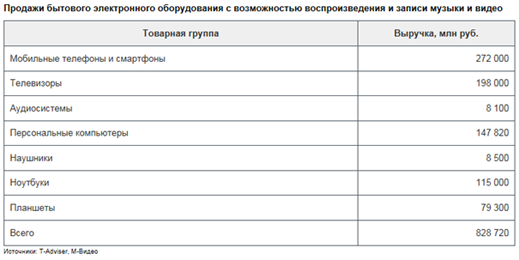
REVENUE FROM AUDIO AND VIDEO CONTENT IN RUSSIAN DIGITAL MEDIA, 2014
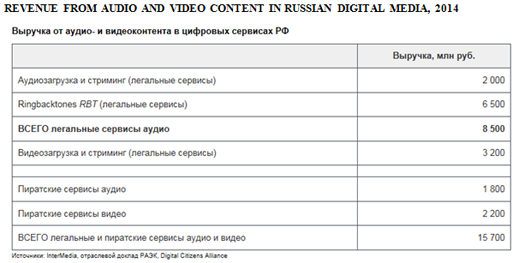
DRAMATIC SLUMP IN RUSSIAN DISC SALES, 2013-2014

Source: http://www.intermedia.ru/news/283591
The war is having an impact on taste and demand for Russian pop music. The economic crisis is having a separate impact; they are reinforcing one another. Concert ticket sales are down sharply, according to this report of March 11, 2016. “The economic crisis, and it is better to say, the unpredictable growth of the exchange rate, has affected, of course, not only the cost of food, but also the price of pop stars. People, as before, want bread and circuses. But if bread they can still afford, how is it with spectacles? Do the stars, Russian and foreign, become more flexible and reduce the price of their performances?.. Stars of different categories have reacted differently to the current economic situation. If we talk about the most popular stars in any event, the majority of the artists of this level have not reduced their prices. Their starting price for a performance or full management of an event is traditionally held in the area of €50,000… As for the stars of the second tier, the situation is the direct opposite. Artists in this category have responded to the rise in the dollar and the euro and changed their price lists to customers, while maintaining the ruble prices at the same pre-crisis level. As a result, they, like all Russians, were affected by currency devaluation and reduced purchasing power.”
Cost and taste have cut Russian audience demand for foreign performers. For Russian groups like Melnitsa, revenue from concerts is down by half, but demand for their music is stable to growing. Rovshan Vahidov, a tour manger with Navigator Records, the outlet for Melnitsa’s music, says: “Of course, the economic crisis has hit businesses hard enough. If in the 2014-15 concert season, we had about 60 concerts a year, plus festivals, for this [2016] season we’ve arranged about 40. Therefore it is necessary to stretch one tour over two seasons, to carry the same music programme and repertoire over two years. It’s pretty uncomfortable.”
Asked about the dynamics of Melnita’s music sales, Vahidov says: “The drop in CD sales compared to 2013 is about 50%. Electronic downloads have also decreased but not by so much. We don’t have exact data now, but we can say this is not only affecting Melnitsa but the whole music sector. Nothing has changed in our radio plays. Oddly enough, there is a quite stable balance between the media. One would expect that more people will move from the physical media to the electronic segment, but not for us.” The group launched its new album Chimera in Moscow yesterday.
According to the Swedish Academy, which awards the Nobel literature prizes, Bob Dylan 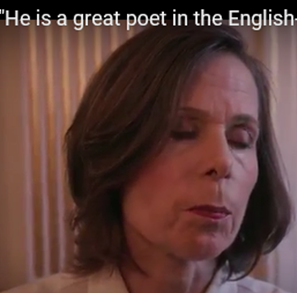 has won his this month “for having created new poetic expressions within the great American song tradition”. Exactly what is meant by “new” wasn’t explained by Sara Danius (right), Secretary of the Academy. She repeated, four times over, that “he is a great poet in the English-speaking tradition”. She also repeated the assessment that Dylan “has been reinventing himself constantly, reinventing himself, creating a new identity”. To justify the award, Danius suggested, again repeating, that “you look back, far back, for 2,500 years or so … and you discover Homer and Sappho and they wrote, um, poetic texts that were meant to be listened to, they were meant to be performed, often together with instruments. And it’s the same way with Bob Dylan. We still read Homer and Sappho and we enjoyed it, we enjoy it, and, ahh, same thing with Bob Dylan. He can be read and should be read and is a great poet in the English tradition, in the grand English poetic tradition.”
has won his this month “for having created new poetic expressions within the great American song tradition”. Exactly what is meant by “new” wasn’t explained by Sara Danius (right), Secretary of the Academy. She repeated, four times over, that “he is a great poet in the English-speaking tradition”. She also repeated the assessment that Dylan “has been reinventing himself constantly, reinventing himself, creating a new identity”. To justify the award, Danius suggested, again repeating, that “you look back, far back, for 2,500 years or so … and you discover Homer and Sappho and they wrote, um, poetic texts that were meant to be listened to, they were meant to be performed, often together with instruments. And it’s the same way with Bob Dylan. We still read Homer and Sappho and we enjoyed it, we enjoy it, and, ahh, same thing with Bob Dylan. He can be read and should be read and is a great poet in the English tradition, in the grand English poetic tradition.”
“Putting Homer and Sappho together”, says a well-known English classics scholar, “let alone lumping both with Bob Dylan tells you how inept the Swedish Academy is in the ancient literature, as well as the modern. Will Mickey Mouse qualify next year for lyricism in the Sapphic mode, or Homer Simpson?”
In case the lyrics which won for Dylan can be read by an English-speaking person who is unfamiliar with Homer, try these from Dylan’s most popular, um, ahh, poetic text, “The Times They Are A-changin’ . According to the Swedish Academy Secretary, they are a “brilliant way of rhyming.” For Russians, this is Swedish illiteracy.
When asked about the social and political themes of his music, Victor Tsoi, front-man and songwriter for Kino, said his songs were works of art, and he did not “wish to engage in journalism”. On August 15, 1990, driving home towards Moscow from a fishing-trip in Latvia, Tsoi fell asleep at the wheel of his car, and was killed.
Let the Russian songs continue speaking for themselves.
Пачка сигарет (“Pack of Cigarettes”) – Kino

Source: Kino’s video clip of his song, Пачка сигарет (“Pack of cigarettes”)
“I sit down and look out another’s window at another strange sky
And I don’t see even one familiar star,
I’ve travelled along all roads,
I’ve been here and I’ve been there,
And when I turned back, my own footprints were gone…
But if I’ve got a pack of cigarettes in my pocket,
Then today won’t be so bad after all,
And a ticket for the plane with silver wings,
Which flies away, leaving only a shadow on the ground…
And no one wants to be guilty for a crime they didn’t commit,
And no one wants to do someone else’s dirty work,
And without music, even company in distress won’t make trouble less,
And without music, I don’t want to fall…
But if I’ve got a pack of cigarettes in my pocket,
Then today won’t be so bad after all,
And a ticket for the plane with silver wings,
Which flies away, leaving only a shadow on the ground…”
Господин Горных Дорог (“Master of the Mountain Road”) – Melnitsa

Source: https://www.youtube.com/watch?v=3HFcJ5nBZcA lyrics: http://megalyrics.ru/lyric/mielnitsa/gospodin-gornykh-dorogh.htm
“Sunset stretched as cross over the top of the valleys of dreams;
You tied grass with knot and wove a strand of my hair into them .
You had sent to stranger’s dreams the crazy visions of the country,
Where days are bright from light of the stars.
I’m setting off after those who never knew the word fear.
O, aren’t those missing, the lost ones in the mountains together with you?
Those who have found peace because there the winds dance under your hand,
On the edge of the clear morning?
I’ll call you the Master of the mountain roads.
A flock of clouds is circling before the storm.
Our blood is dripping into the sand. Forget it,
And it will give sprout to the hardy vine.
I wanted to stay with you,
I’ve already managed to dare.
Do you know that when you can see through pain
It smells of snow?
Is it because of the long distance, the height?
Does death smell so?
Let the frost cover the chains of my tracks
So that noone can find them.
Who now can read your name under the ice,
O, my Master of the mountain roads?”

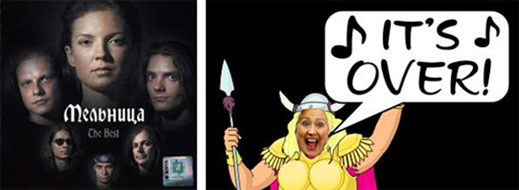
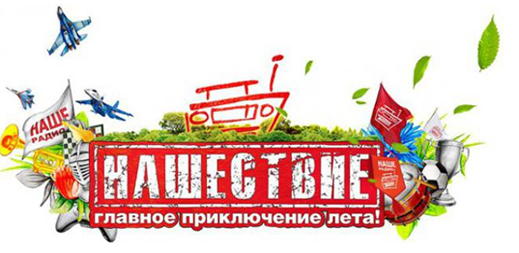










Leave a Reply